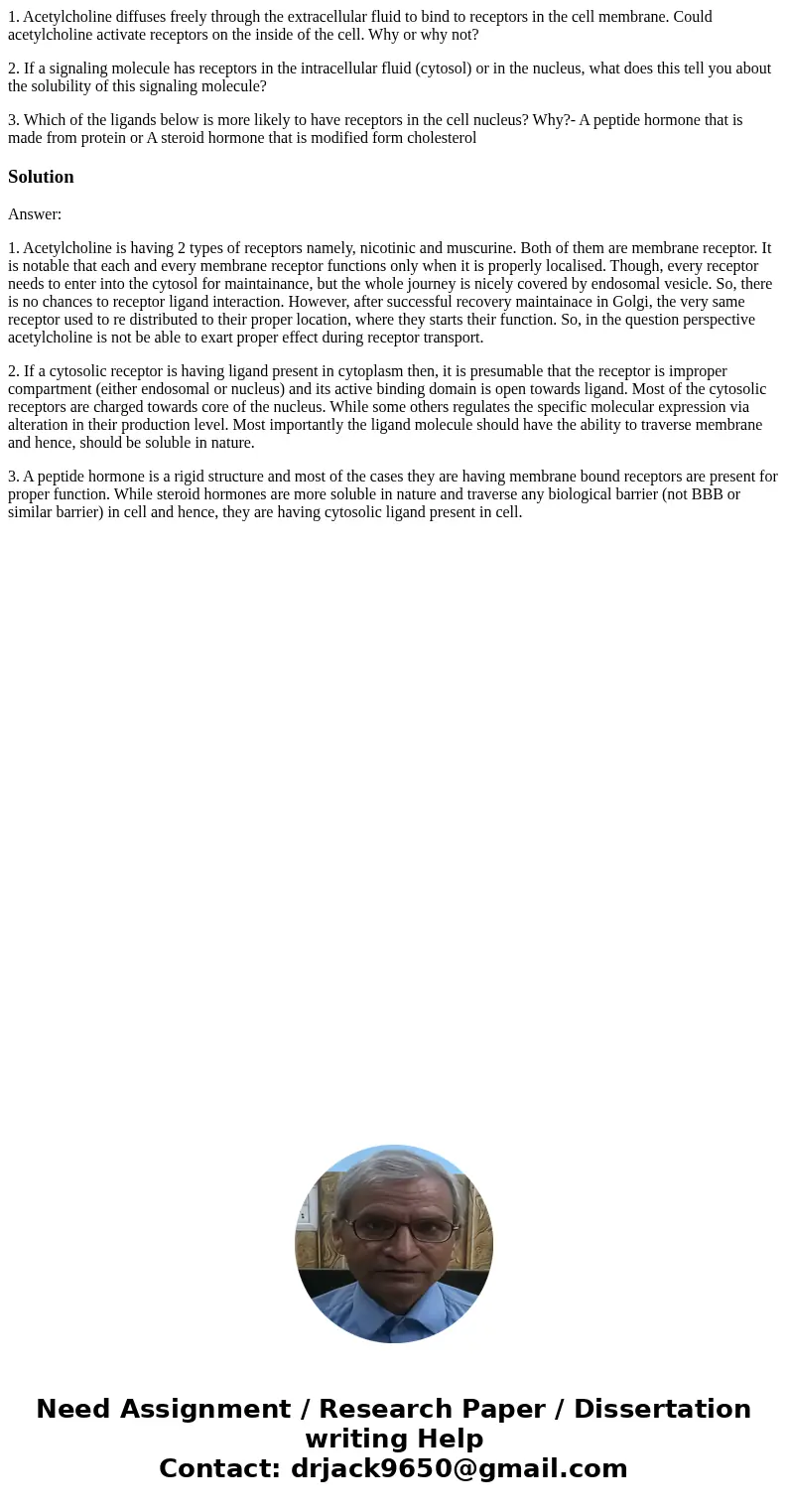1 Acetylcholine diffuses freely through the extracellular fl
1. Acetylcholine diffuses freely through the extracellular fluid to bind to receptors in the cell membrane. Could acetylcholine activate receptors on the inside of the cell. Why or why not?
2. If a signaling molecule has receptors in the intracellular fluid (cytosol) or in the nucleus, what does this tell you about the solubility of this signaling molecule?
3. Which of the ligands below is more likely to have receptors in the cell nucleus? Why?- A peptide hormone that is made from protein or A steroid hormone that is modified form cholesterol
Solution
Answer:
1. Acetylcholine is having 2 types of receptors namely, nicotinic and muscurine. Both of them are membrane receptor. It is notable that each and every membrane receptor functions only when it is properly localised. Though, every receptor needs to enter into the cytosol for maintainance, but the whole journey is nicely covered by endosomal vesicle. So, there is no chances to receptor ligand interaction. However, after successful recovery maintainace in Golgi, the very same receptor used to re distributed to their proper location, where they starts their function. So, in the question perspective acetylcholine is not be able to exart proper effect during receptor transport.
2. If a cytosolic receptor is having ligand present in cytoplasm then, it is presumable that the receptor is improper compartment (either endosomal or nucleus) and its active binding domain is open towards ligand. Most of the cytosolic receptors are charged towards core of the nucleus. While some others regulates the specific molecular expression via alteration in their production level. Most importantly the ligand molecule should have the ability to traverse membrane and hence, should be soluble in nature.
3. A peptide hormone is a rigid structure and most of the cases they are having membrane bound receptors are present for proper function. While steroid hormones are more soluble in nature and traverse any biological barrier (not BBB or similar barrier) in cell and hence, they are having cytosolic ligand present in cell.

 Homework Sourse
Homework Sourse